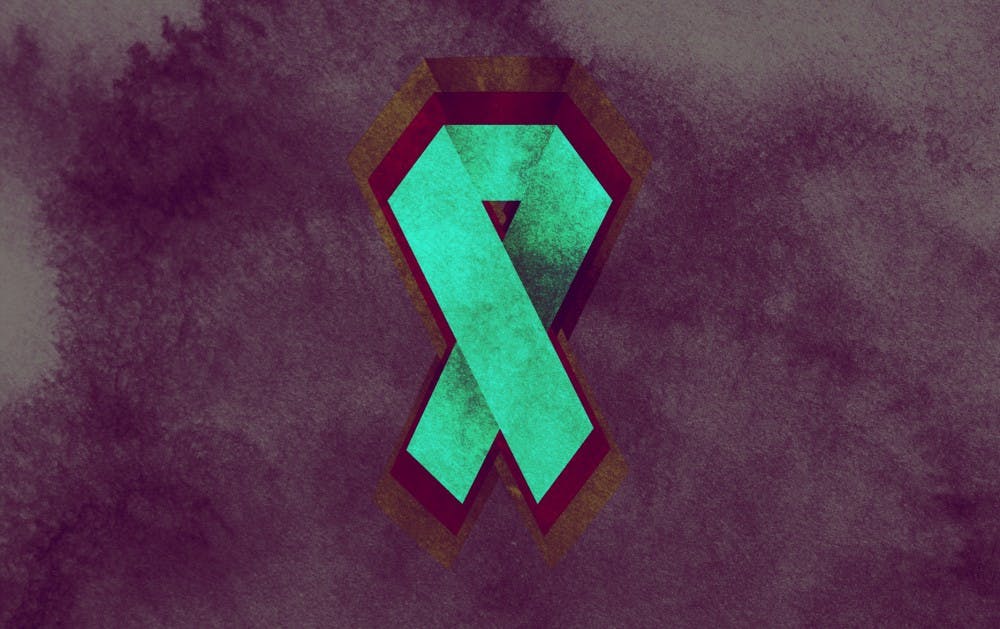High-profile stories of sexual assault and misconduct are mainstays in the news cycle, with coverage varying from the #MeToo movement to assaults on campus and in the workplace.
Cases such as those of Bill Cosby and Brock Turner have sparked nationwide conversations to raise awareness about the frequency and consequences of sexual assault.
As the national discussion on sexual misconduct has developed, an uncomfortable truth has become apparent: A female student is most likely to experience sexual assault during the first four semesters of her college career.
This isn't necessarily new information. In 2007, the Department of Justice funded a study that found "women who are victimized during their college career are most likely to be victimized early during their college tenure," a pattern the report says is consistent with previous academic literature.
More recent studies on large college campuses have found similar results. The University of Colorado Boulder conducted a survey of its students in fall 2015 that found that 67 of sexual assaults happened to first years. A study from the same year published in the Journal of Adolescent Health had similar findings.
Throughout the years, this time period, particularly the beginning of the semester, has been dubbed the "red zone."
According to an ASU spokesperson, "the entire first year of college represents an elevated risk.
At ASU, some students have taken advocating for awareness into their own hands.
Among those is Sai Sailaja Seshadri, a political science senior and founder of Women’s Republic, an online magazine that focuses on giving women a platform to discuss and find solutions for social issues they face around the world.
“I kept seeing so many tweets about sexual assault or sexual violence,” she said. “I started looking into the statistics about it, and this red zone is a thing that exists.”
Seshadri credits a report from NBC, which cites the CU Boulder survey, for her discovery of the red zone.
“I think first of all, the most important thing is to educate people about it,” Seshadri said. “The biggest thing that colleges can do, maybe at freshman orientation, is put more emphasis on things like this.”
Between 2014 and 2016 there were 90 cases of sexual assault on the four main ASU campuses, according to the ASU police department's annual Clery Report. There were eight cases of sexual assault between 2014 and 2016 off campus. However, ASU police only has primary jurisdiction for all ASU-owned and operated properties, except for on the Thunderbird and Lake Havasu City campuses.
These are only the reported cases. According to a RAINN study, two out of three sexual assault incidents go unreported.
Seshadri said she went to her fair share of parties during her time at college, and encourages students to go out but to be careful while doing so.
A sustainability sophomore and victim of sexual assault wishes to remain anonymous for privacy purposes.
One ASU sustainability sophomore, who The State Press has granted anonymity because of the sensitivity of the issue, said she a man groped her from behind at a welcome week event last year. He then claimed that it was an accident before laughing and walking away, she said.
“Every person deserves to feel safe in their own body and feel comfortable on campus,” she said.
She said that being a victim of sexual assault can make it difficult to feel safe in other environments, even at home.
“It made it really difficult to live on the ASU campus," she said. "I didn’t want to be there anymore because I didn’t feel comfortable on my own campus, and I had only been there for three weeks. I wish that I had done something to defend myself. I wish that I had done something to make sure he doesn’t do this to someone else.”
However, she added that going to the root of the problem is the only way to really prevent these things from happening.
Teresa Wroe is the director of education and prevention and deputy Title IX coordinator at the Office of Institutional Equity and Compliance at the University of Colorado Boulder. Wroe oversaw the CU Boulder survey on sexual assault on campus.
"Being more open about these issues, having quality response resources, and building skills around body autonomy, sex, consent, and healthy relationships is something we need built into the educational environment if we really want to prevent sexual assault, which unfortunately disproportionately impacts young people," Wroe said.
ASU has on-campus efforts to promote awareness and safety for students, faculty and staff. The Sun Devil Movement for Violence Prevention has events for Sexual Assault Awareness Month and there are various organizations across campus that advocate for safety and security, like Team One Love at ASU, which aims to provide education about sexual and relationship violence and support for those who need it.
“We work to educate ASU students about unhealthy and abusive relationships," said Team One Love member and junior studying biochemistry, Julie Alvarez.
The Sun Devil Support Network is a branch under the Sun Devil Movement for Violence Prevention and is a community that provides students with information, support and resources related to incidents of sexual violence.
Rachel Geiser, a senior double majoring in biochemistry and political science, is a licensed member of SDSN.
“The main goal of SDSN is to provide survivors of sexual assault with someone to talk to about their experience," she said. "(And) to have someone help them through the official reporting process with the school should they choose to pursue that course of action."
The prevalence of sexual assault may have been underestimated in the past, but recent movements have promoted awareness and uncovered the reality of the situation. With this in mind, students are looking to the future for potential solutions.
"We believe you," Geiser said, "and you're not alone."
Reach the reporter at adunn11@asu.edu or follow @adrienne_dunn on Twitter.
Like The State Press on Facebook and follow @statepress on Twitter.




